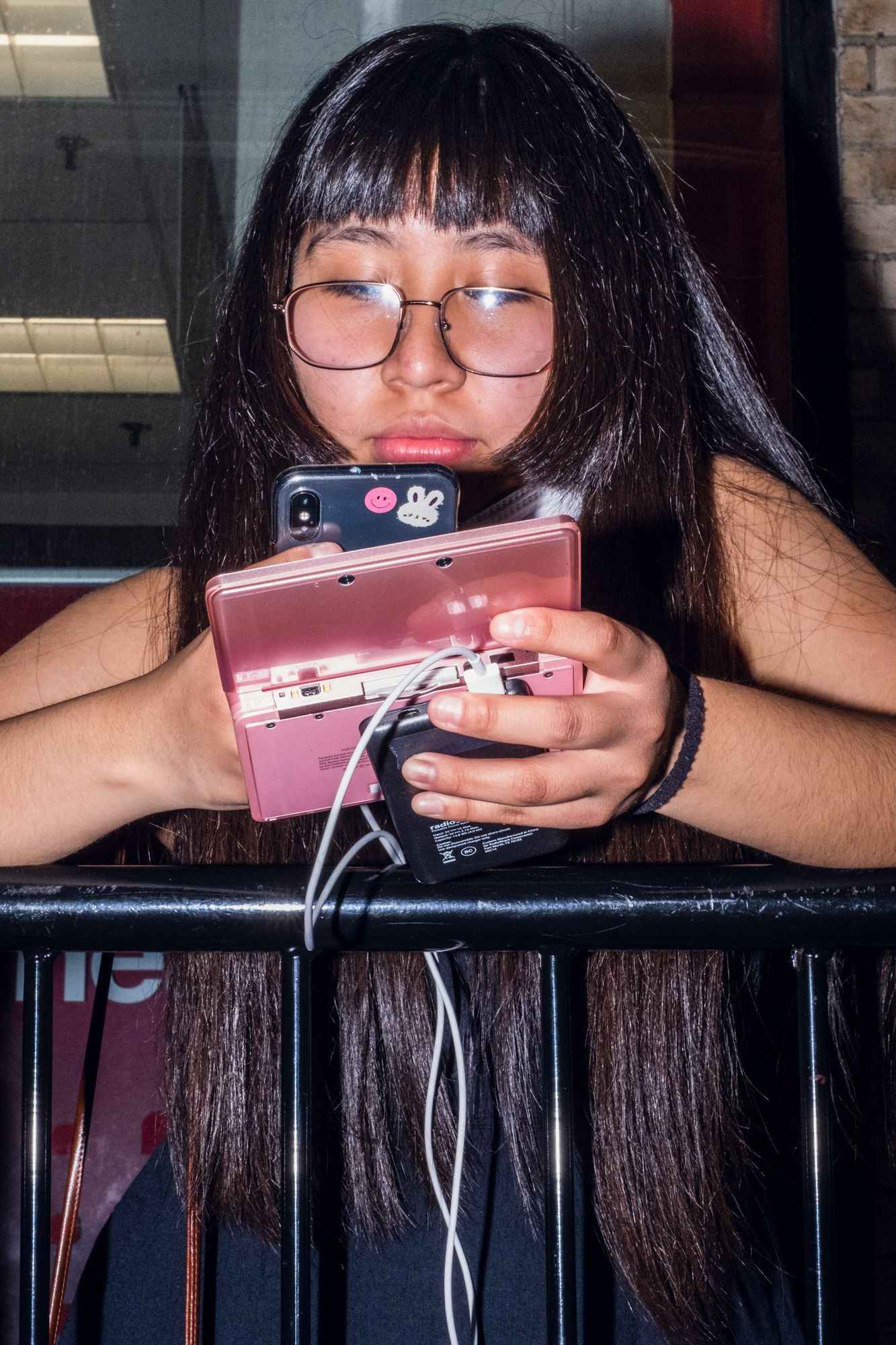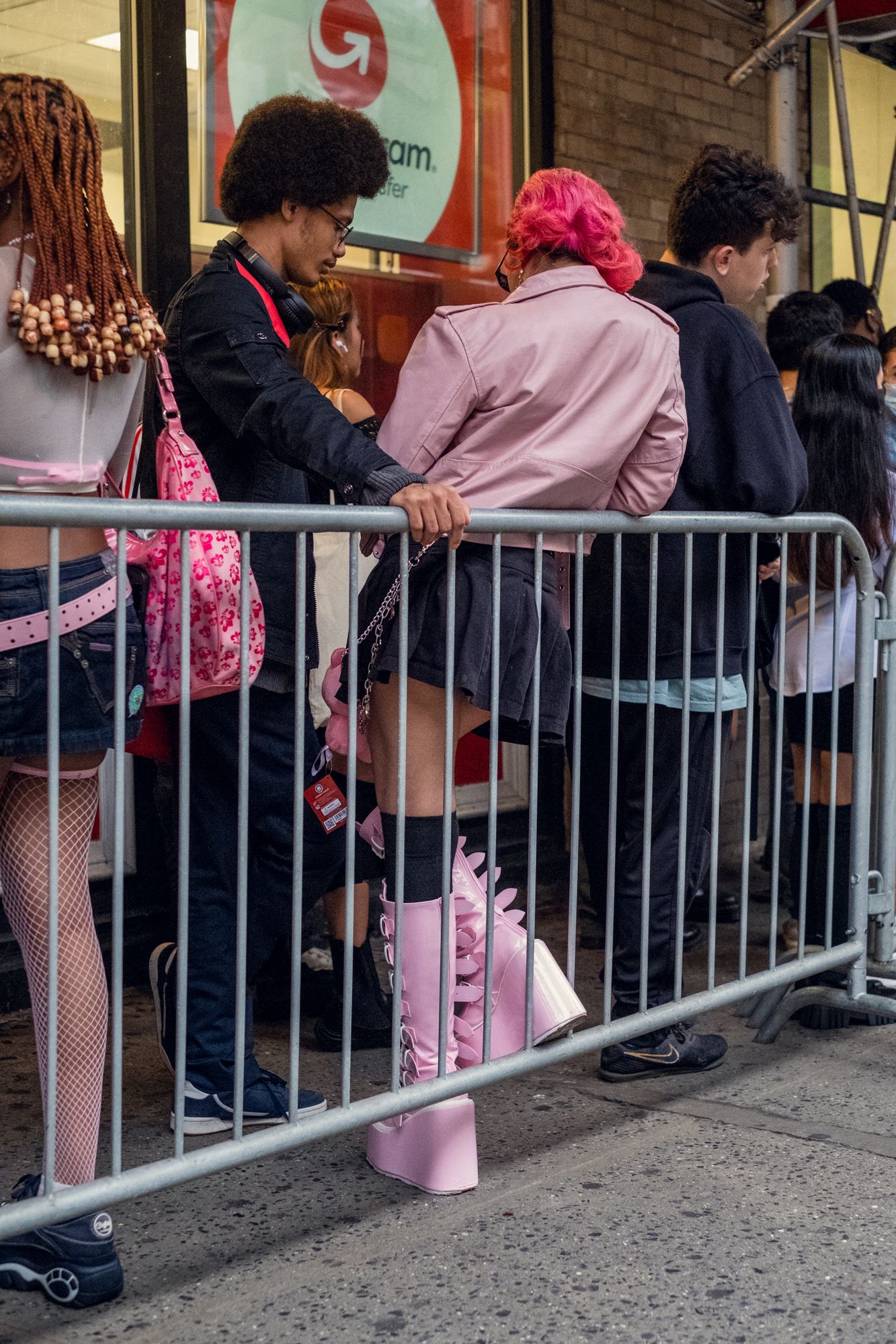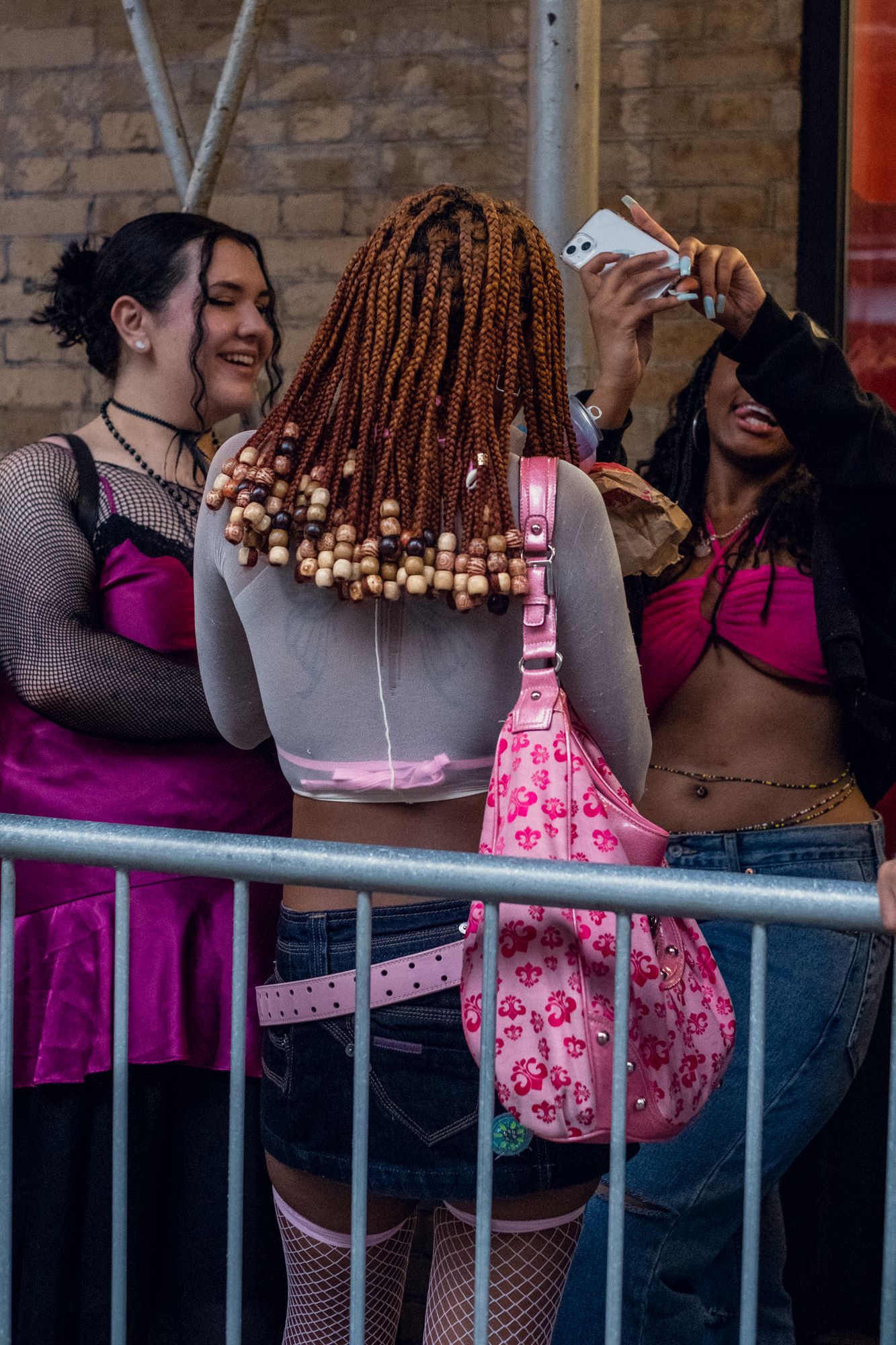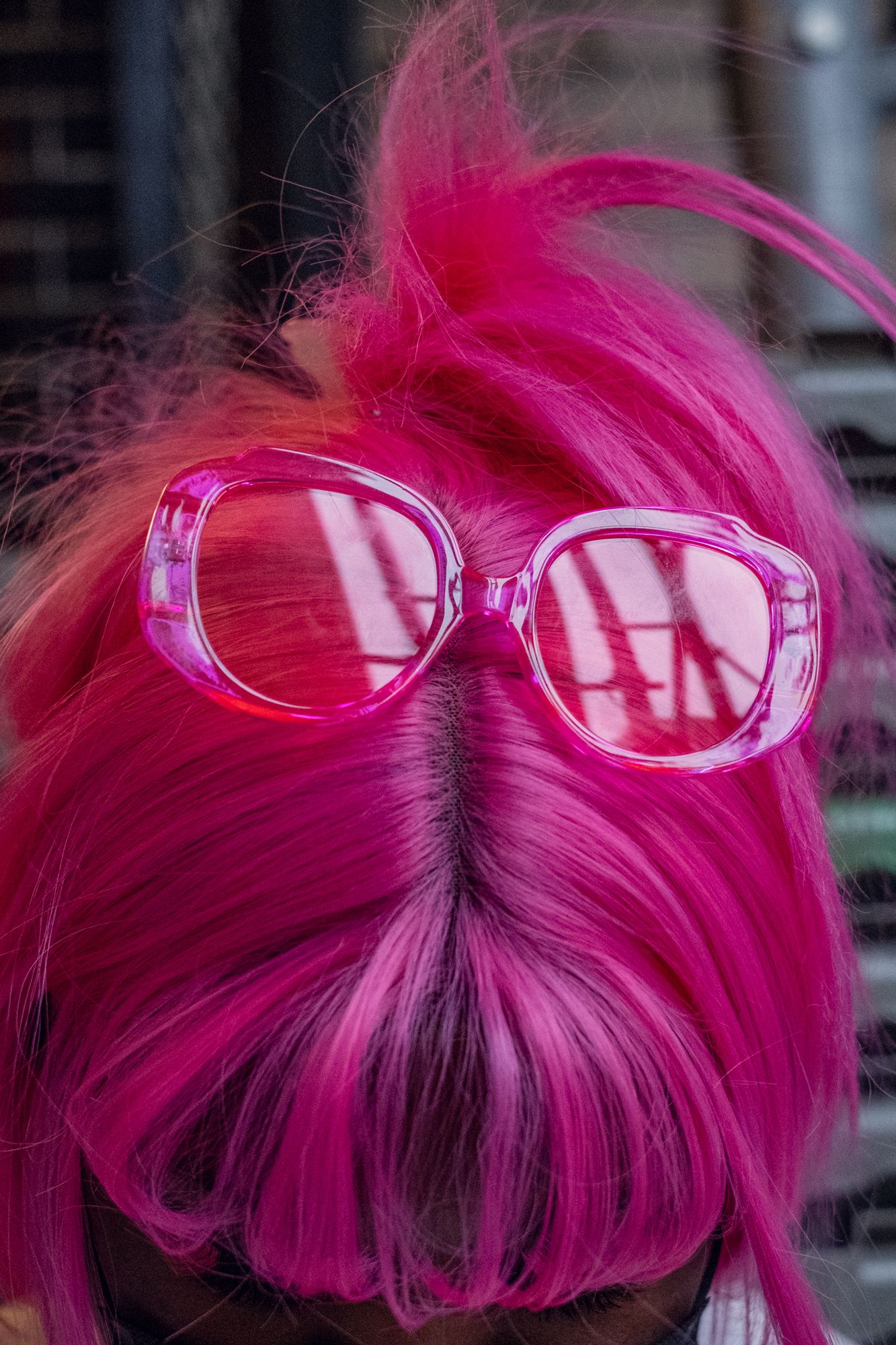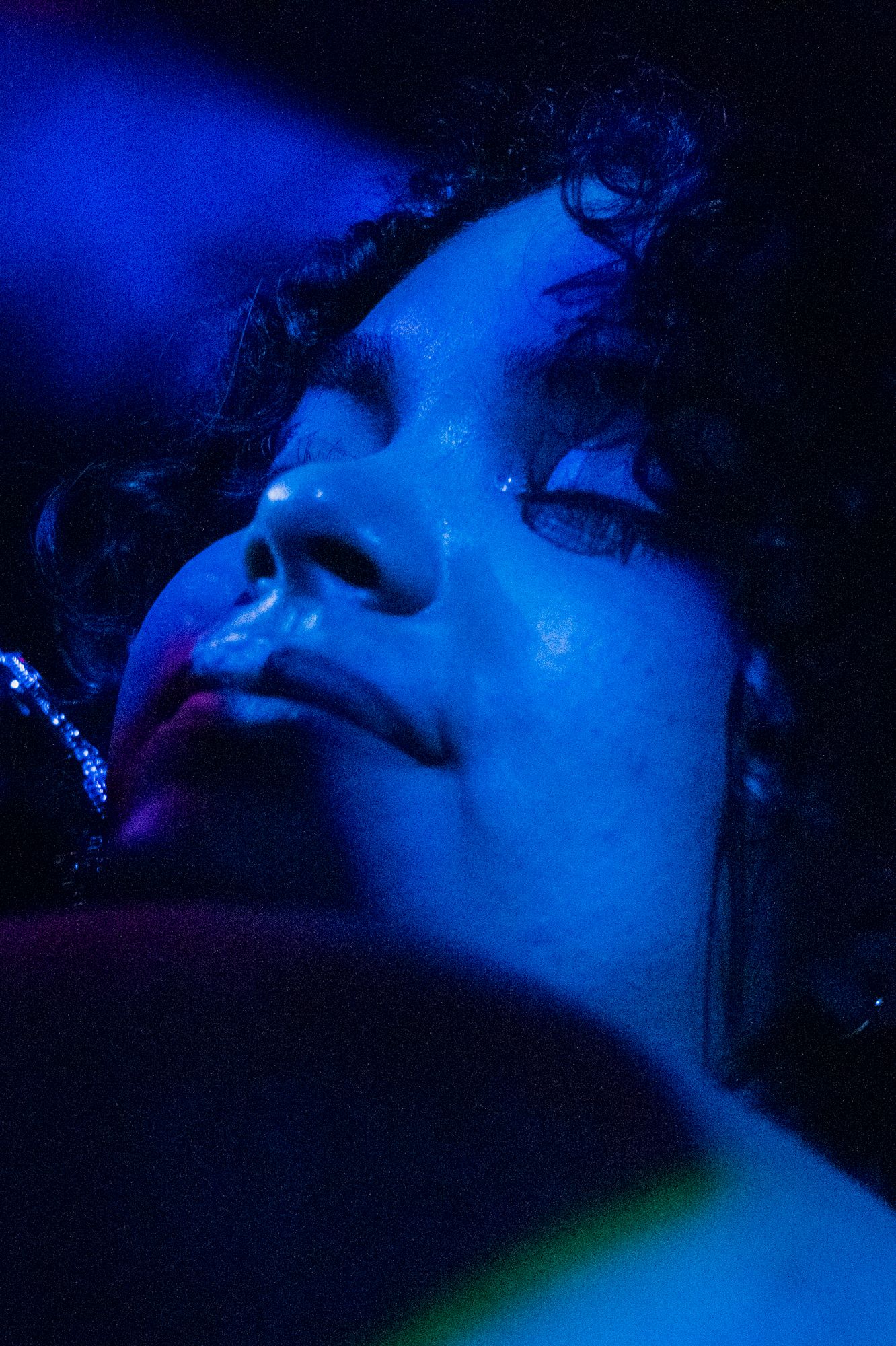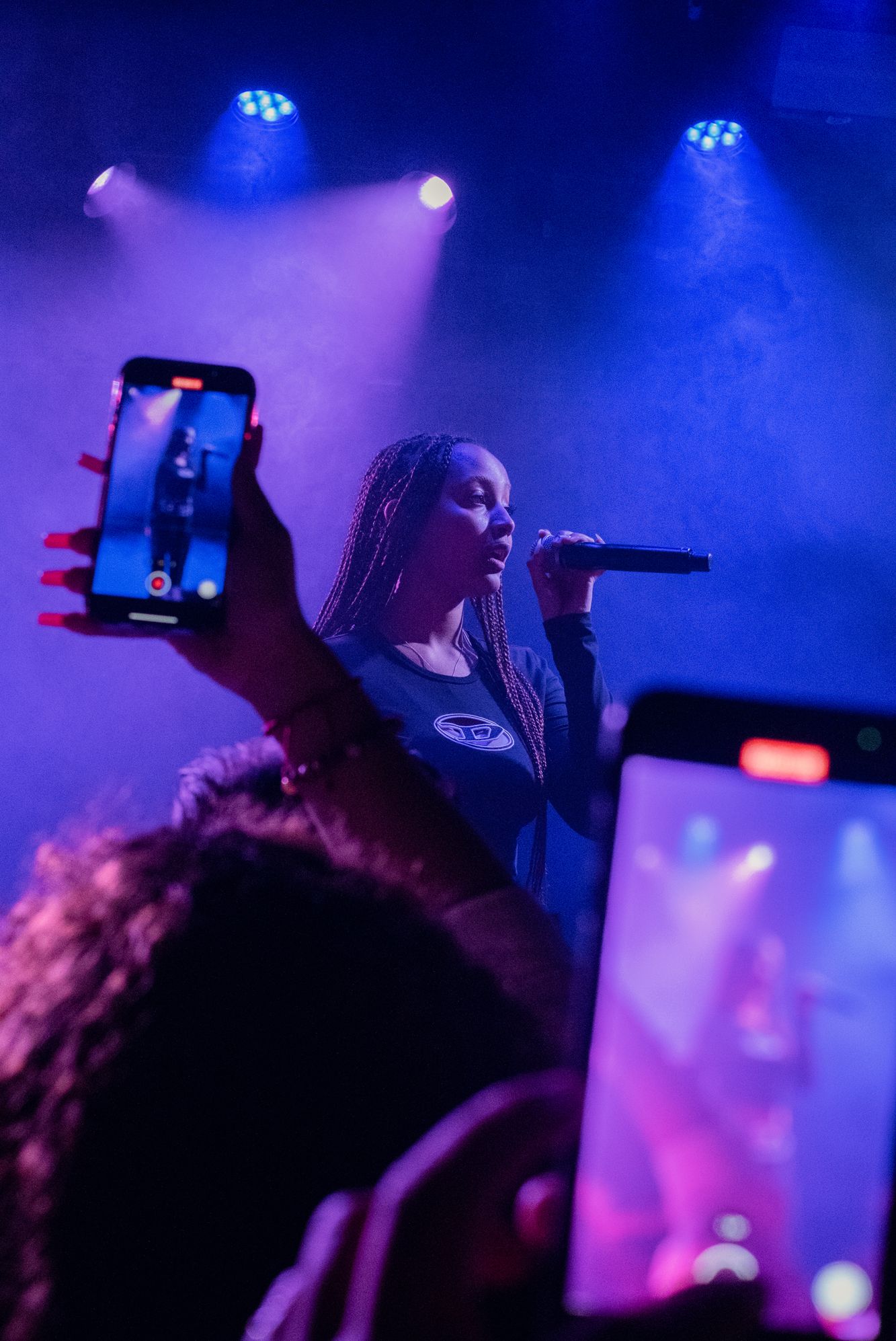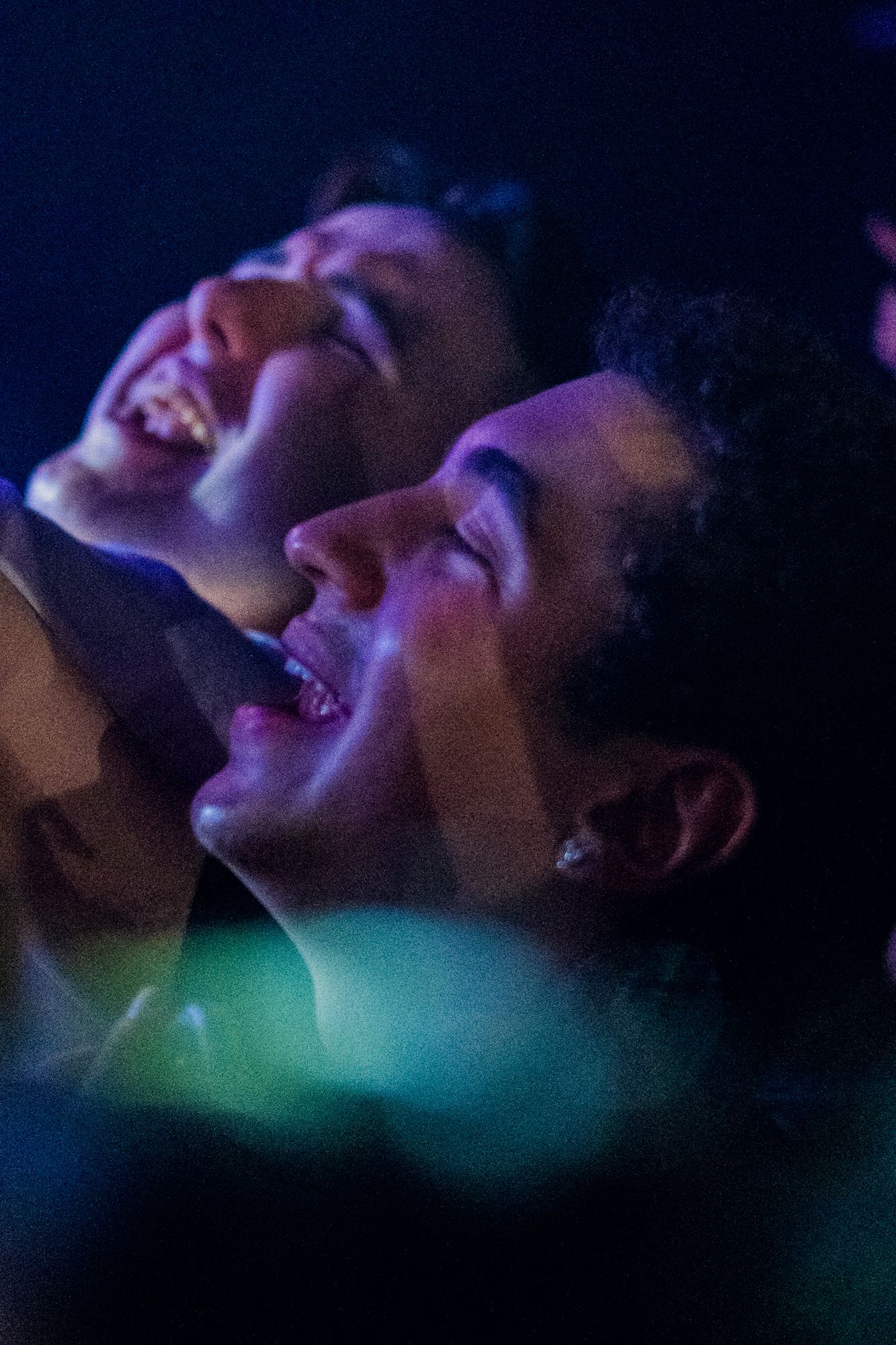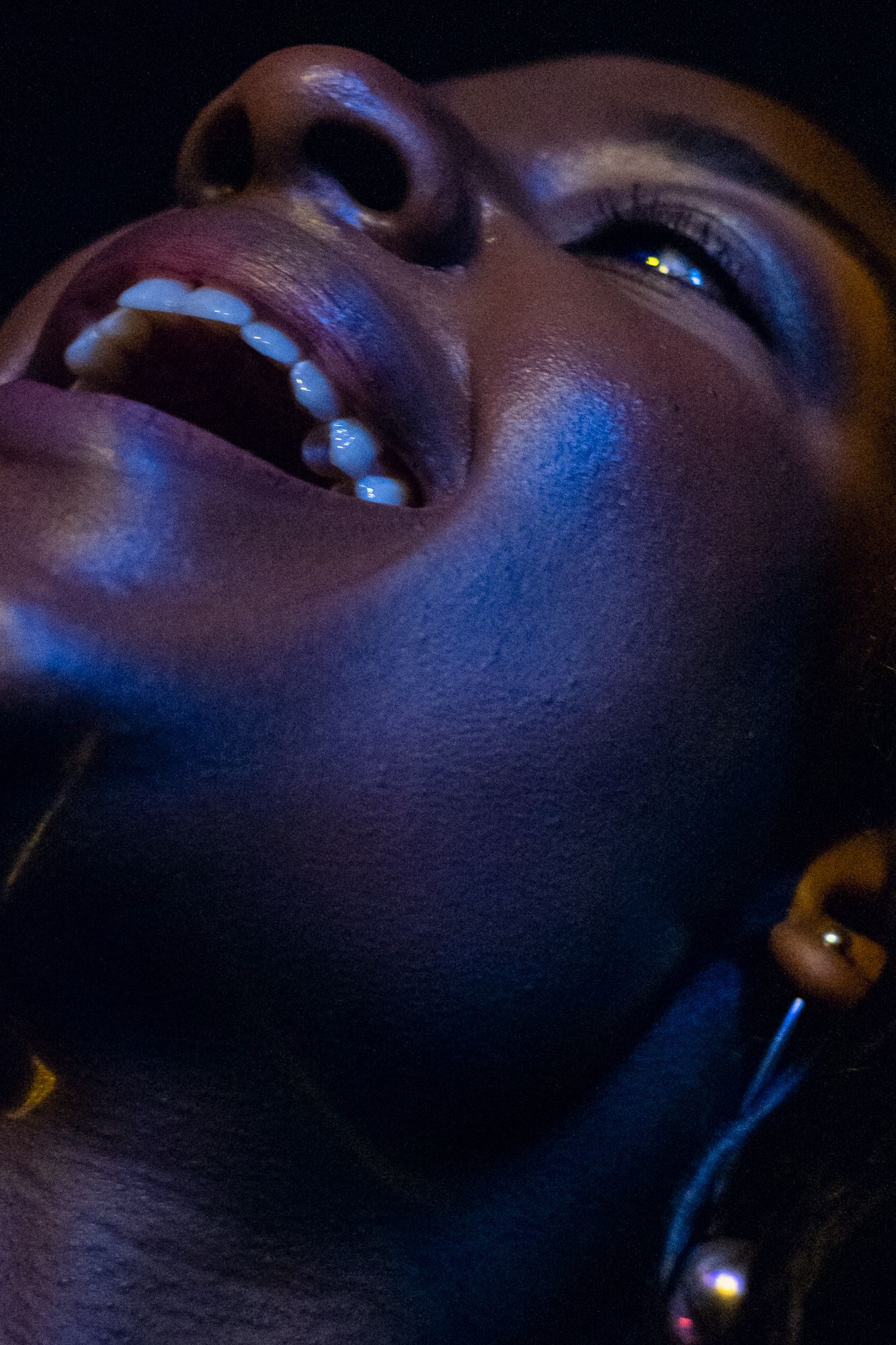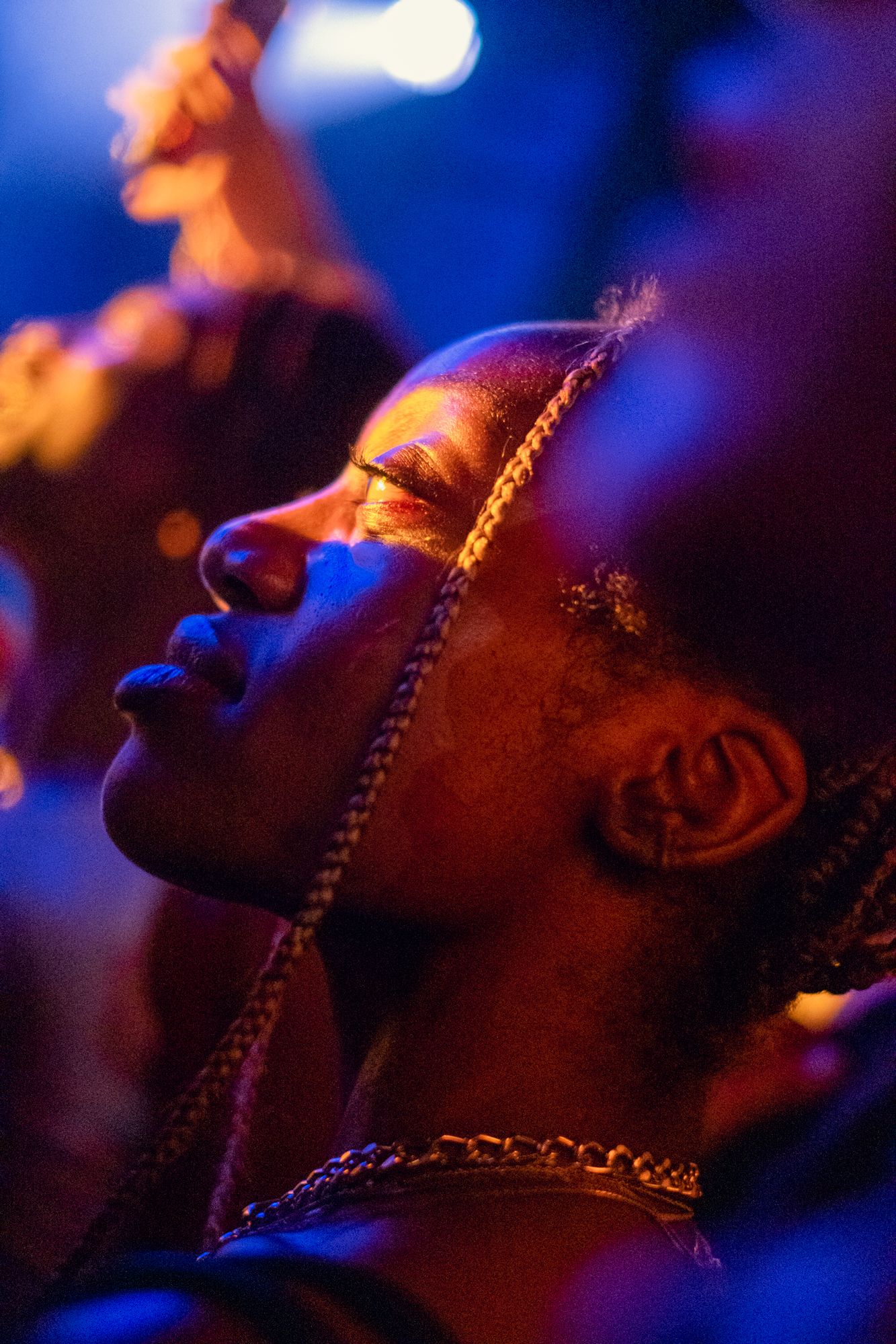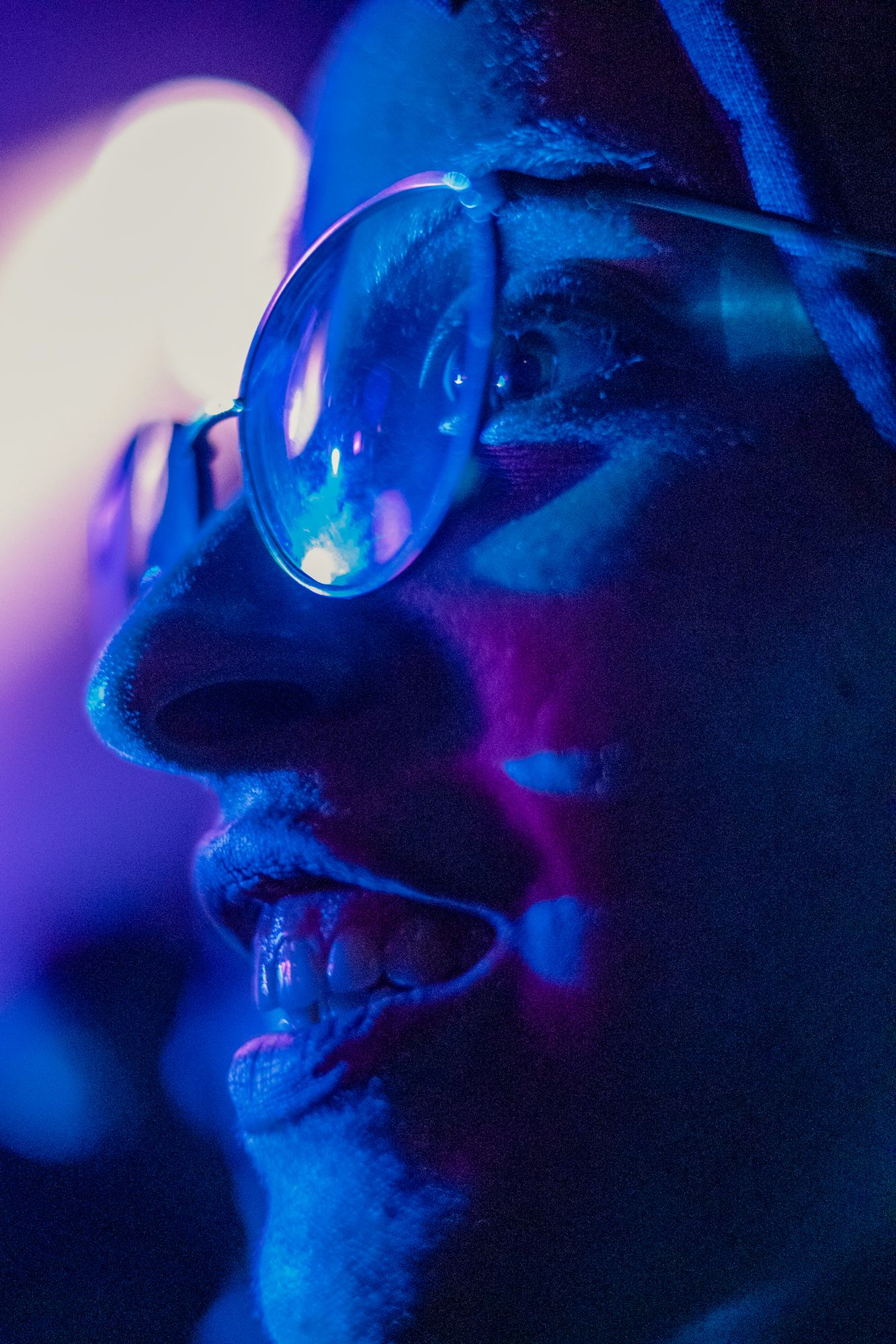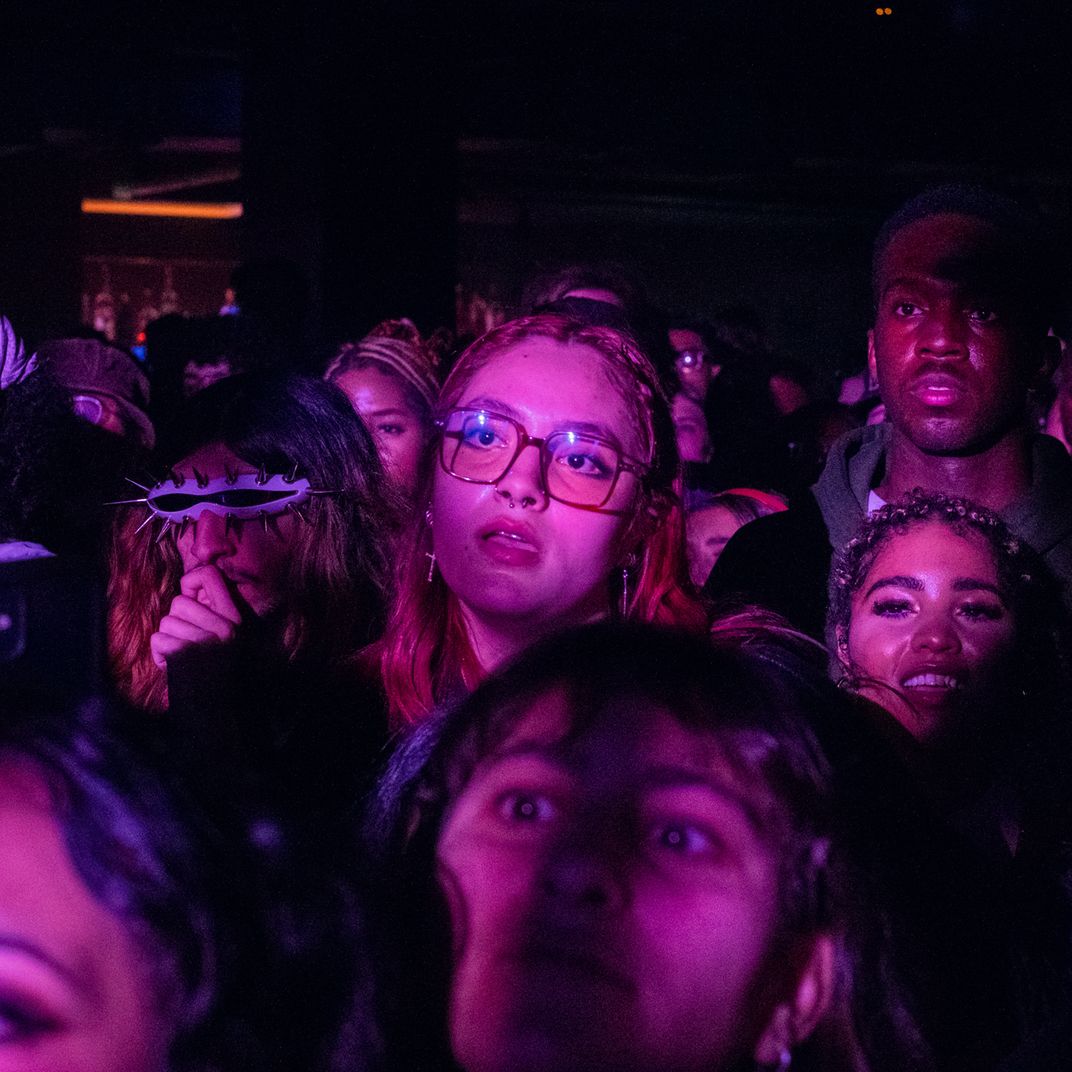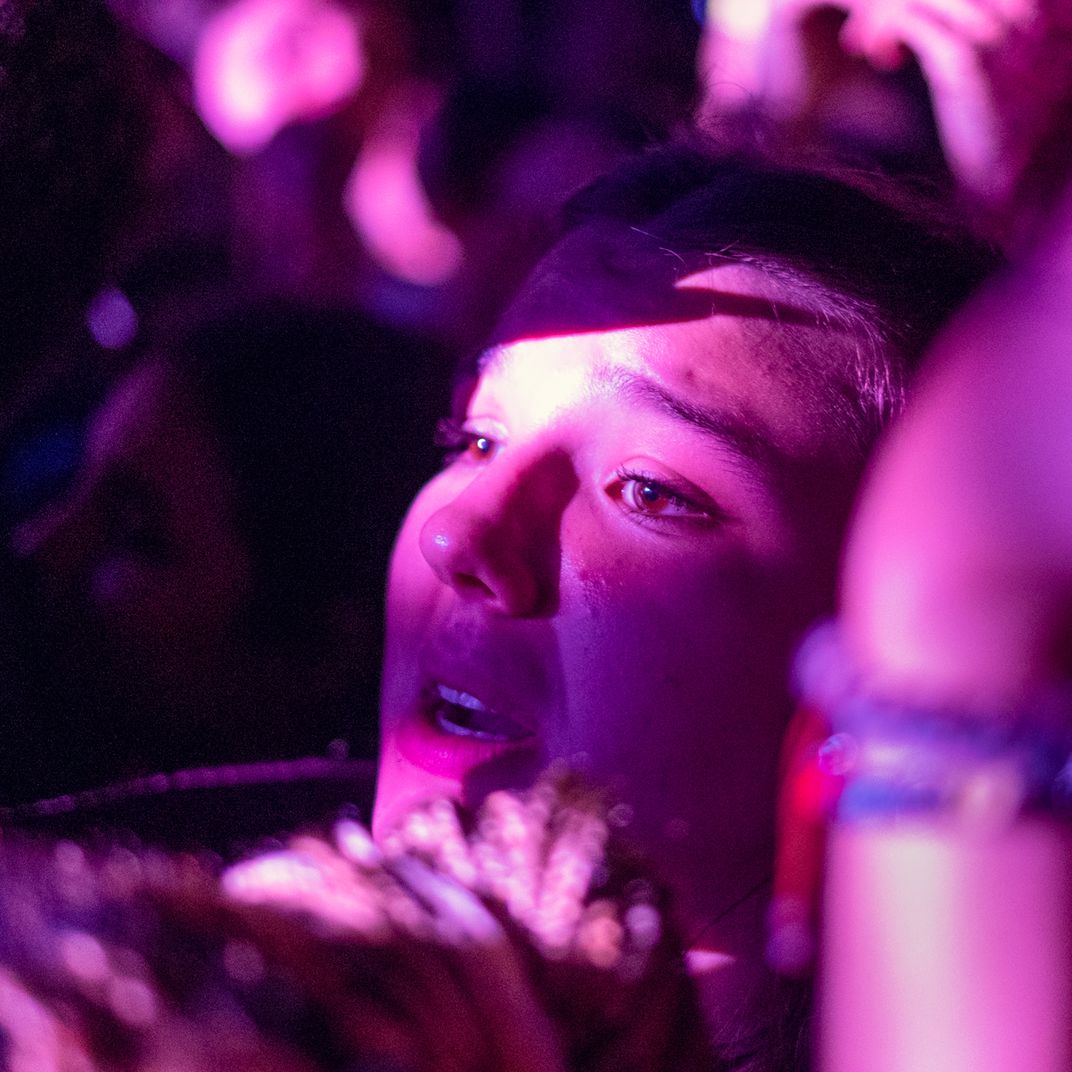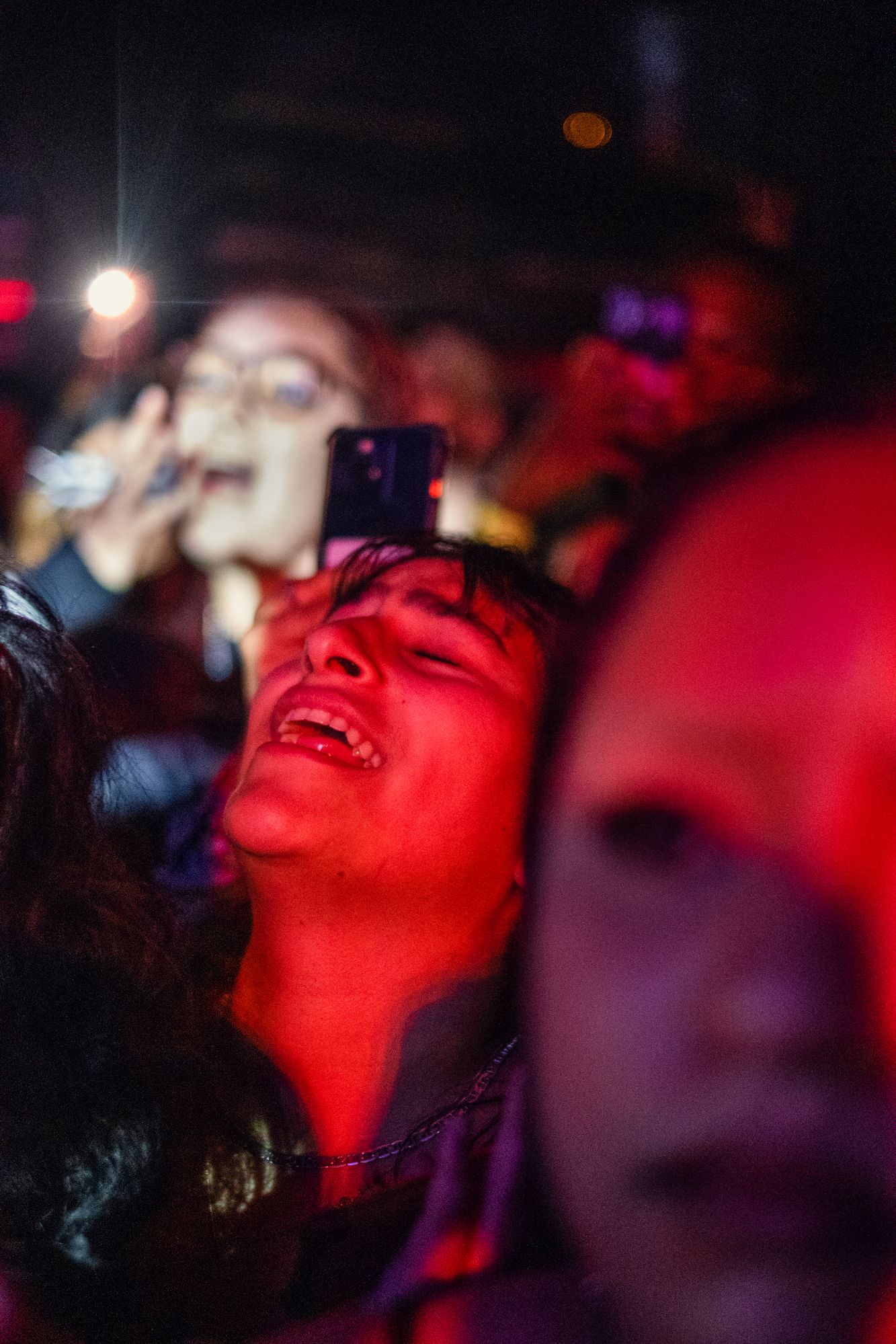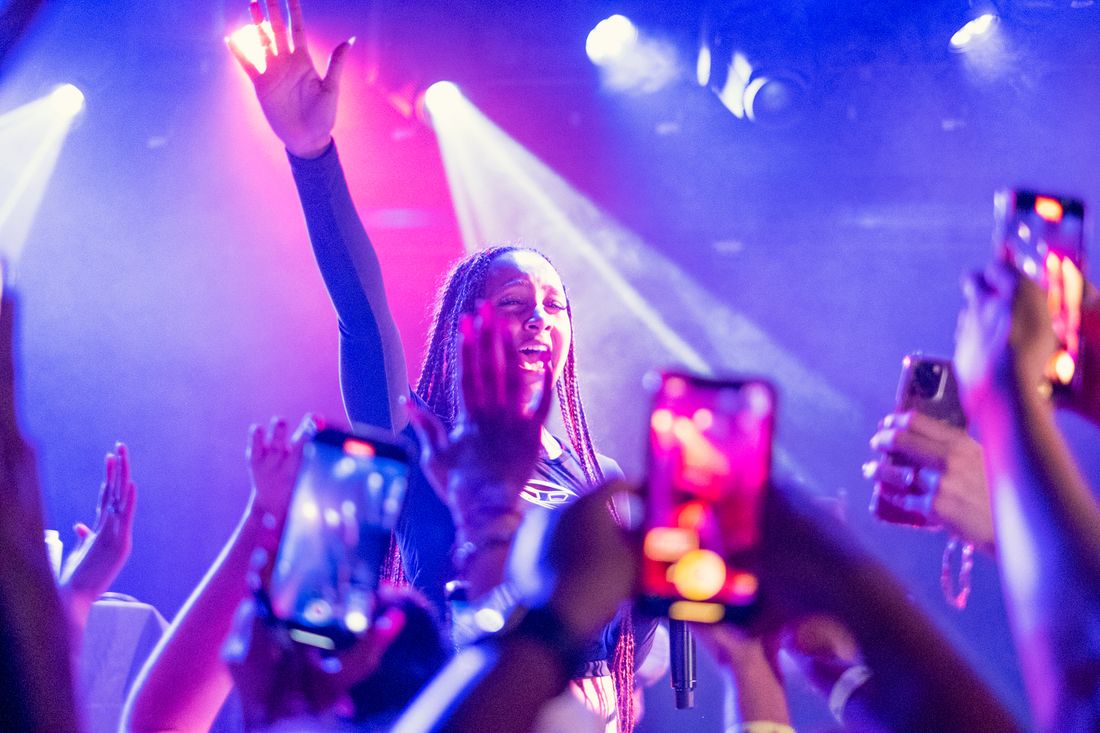
I know I’m in the right place when I see a large crowd of people dressed in what I’m calling “seventh-grade alternative”: black-and-white checkerboard belts slung over low-rise flares, midriff-baring baby tees with maxi skirts, tiny bags with gigantic boots, bucket hats and more than one cosplay wig. They’re here to see the 21-year-old internet-famous artist PinkPantheress, who is making her live New York debut at Le Poisson Rouge. Later, onstage, the artist looks down at her fandom in amazement. “You guys all look so good!” she says.
It’s Friday the 13th, and a miserable one at that, white-gray and opaque with heavy, humid fog. It is apt weather for listening to someone like PinkPantheress, who makes the kind of yearning, melancholy garage music that leaves you wistful for a time and place even if you never experienced them firsthand. (“New nostalgic” is how she describes her work.) The majority of the people in attendance were toddlers in the early 2000s and perhaps not even alive when drum-and-bass took over the U.K., and yet when the warm-up DJ plays Daniel Bedingfield’s classic of the genre “Gotta Get Thru This,” they seem right at home.
The London-based artist shot to fame the same way dozens have before: by uploading snippets of her music to TikTok and letting the algorithm work its magic. Her first flirtation with virality was “Pain,” which blew up on the app in early 2021, followed shortly after by “Break It Off.” By October, she had signed with the record label Parlophone and released her first mixtape, to hell with it. What separates her from the crop of Zoomers building music careers on TikTok: Her fans don’t know her name. (That anonymity is fiercely protected by her team, who are strict with press and denied any interview or photos for this story.) The PinkPantheress moniker came to her when she was watching a game show on which the host asked the question, “What is a female panther called?” The Daily Mail has, of course, published her real name, but to her fans it barely matters: She’s still the most relatable artist they know, someone who writes lyrics filled with a sense of longing and loneliness. “She makes it feel comfortable to be shy,” says Sebastian, one of a group of college students standing by the bar who say they all have crushes on the artist. “She’s shy, and I’m like, Okay, I can be shy, too.” Another kid says she makes him feel like a “main character.”
Many people here work in music or fashion or media or are trying to. “On a lot of her early stuff, she did the production all by herself, which is super-cool,” a 21-year-old named Jackson, who’s studying music, tells me. “It’s rare to have a production-heavy album that’s also female-driven.” He’s with a girl who looks like baby Avril Lavigne: straight blonde hair streaked with black underneath, wearing a ringer tee that says SEX WITH YOU SUCKS. (Chloe Cherry wore a similar version at Coachella.) Their group is on the dance floor taking flash plandids. The oldest people in the audience are in their mid-to-late 20s. A 28-year-old named Lindsay tells me she loves PinkPantheress because she captures what it feels like to be a young woman. “I’m not 19, but I once was 19,” she says. “She nails it.”
It’s common within the PinkPantheress fandom to joke about the brevity of her music. None of her songs cross the three-minute mark, and most don’t even hit two; I listen to her 19-minute-long mixtape twice on the Uber over to the venue. Her whole set lasts less than half an hour — and that’s after she repeats “Pain” a few times. (The crowd sings along to every word.) At the bar, I meet a girl who says she was slightly late to the Oakland show and ended up missing the whole thing. Perhaps these are simply the growing pains of an early-career artist. Even the venue was changed last minute from its original location, the former dim sum restaurant–slash–club 88 Palace (which, according to a rumor, was having HVAC issues that couldn’t be fixed in time).
For someone who, up until recently, barely showed her face on TikTok, PinkPantheress seems perfectly at ease live. “This is my second-to-last show, so my voice is done out! It’s finished!” she says, laughing. She dances serenely back and forth across the stage and takes selfies with other people’s phones; she borrows a pair of pink sunglasses from someone in the crowd and finishes a song wearing them. Her eyes light up when she notices somebody brought a copy of her album — which you can buy only on CD, cassette, or USB drive. “Look at this!” she shouts, waving it in the air to raucous applause. The crowd is full of smartphones jostling to capture the best angle. When the lights come on, I walk by a girl with a hunk of something silver slung from her wrist. At first glance, it looks like a tiny new status bag, but it’s not: It’s a digital camera that appears to be from the mid-2000s. Sure, it performs exactly the same function as the phone she carries in her other hand, but in a room full of main characters, the girls who get it, get it.
PinkPantheress onstage at Le Poisson Rouge.
During the show.
PinkPantheress onstage at Le Poisson Rouge.
During the show.


